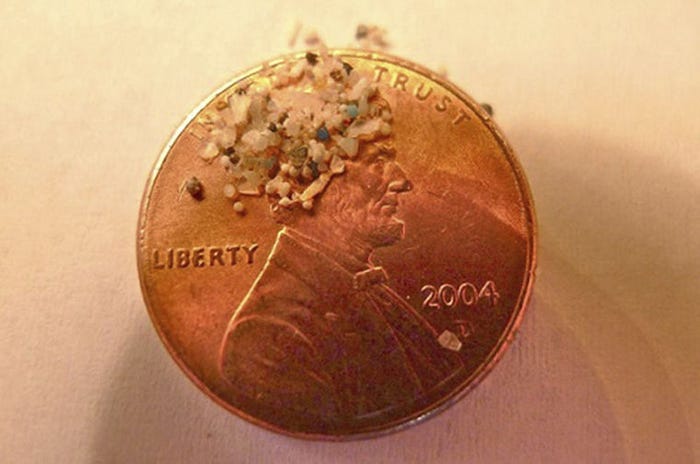President Obama has signed into law a bill phasing out the production of all plastic microbeads in soaps, scrubs and other healthcare products by July 1, 2017 and the sale of such beauty products by July 1, 2018. The Microbead-Free Waters Act (H.R. 1321), introduced by Reps.
December 30, 2015
President Obama has signed into law a bill phasing out the production of all plastic microbeads in soaps, scrubs and other healthcare products by July 1, 2017 and the sale of such beauty products by July 1, 2018. The Microbead-Free Waters Act (H.R. 1321), introduced by Reps. Frank Pallone (D-N.J.) and Fred Upton (R-Mich.), was unanimously approved by both the House and Senate earlier this month.
|
Image courtesy 5 Gyres Institute. |
These small bits of plastic, used as exfoliants in personal care products, like face wash and toothpaste, can slip through water treatment systems after they are washed down the drain. As a result, these microbeads often end up in local streams, rivers and larger bodies of water.
“Our oceans are inundated with microplastics that threaten sea birds, turtles and other marine wildlife. Now we can stop adding to the trillions of pieces already out there,” said Blake Kopcho, oceans campaigner with the Center for Biological Diversity. “This will eliminate a pointless and harmful source of plastic pollution before it ever has a chance to reach the oceans.”
The types of plastic most commonly used as microbeads are: polyethylene, polymethyl methacrylate, nylon polyethylene terephthalate and polypropylene.
“It’s a banner day for Lake Michigan and the Great Lakes," said Upton in a statement. "We now have a bipartisan law on the books to cleanse dirty microbeads from all our nation’s waters."
“The President’s signature on this legislation is a major victory for U.S. waterways and the environment,” said Pallone. “Without the ban, an estimated eight trillion plastic microbeads pollute U.S. waterways each day, threatening the environment and ultimately our health.”
About the Author(s)
You May Also Like



